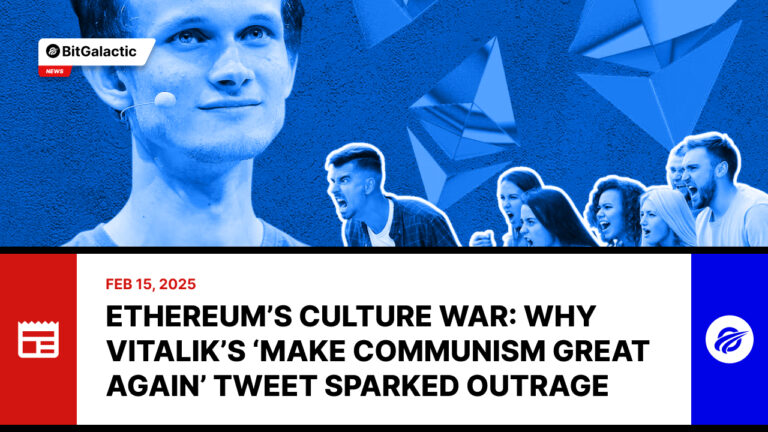Ethereum’s Culture War: Why Vitalik’s ‘Make Communism Great Again’ Tweet Sparked Outrage.
When Vitalik Buterin speaks, the crypto world listens. But his recent tweet—”Make Communism Great Again”—sent shockwaves through Ethereum’s investor community. The unexpected backlash revealed deeper tensions within Ethereum, from ideological divides to concerns over the network’s sluggish performance.
A Tweet That Shook the Crypto Sphere
On Wednesday, Buterin, the 31-year-old co-founder of Ethereum, casually dropped the phrase to his 5.7 million followers on X (formerly Twitter). The response was anything but casual.
- Viktor Bunin, a protocol specialist at Coinbase, furiously retorted, “F*** communism and f*** communists.”
- Ameen Soleimani, founder of MolochDAO and Oxbow, simply declared, “I quit.”
- Solana’s co-founder Anatoly Yakovenko equated communism with fascism, fueling the heated discourse.
At the heart of this firestorm was Ethereum Foundation’s latest hire: Devansh Mehta, a crypto governance expert brought in to lead AI and cryptocurrency initiatives. His prior work with Arbitrum and Gitcoin—both known for funding public goods—seemed to stoke fears among critics who view Ethereum’s direction as too aligned with collectivist ideals.
Ethereum’s Market Struggles & Growing Discontent
Ethereum’s community has been increasingly restless. Despite Bitcoin’s 90% surge and Solana’s 69% gain over the past year, Ether has barely moved—down about 1%, per CoinGecko. Many blame Ethereum’s bureaucracy and financial mismanagement. The foundation, sitting on a war chest of $900 million in ETH, faces criticism for failing to deploy resources effectively to developers and network growth.
The Real Meaning of ‘Degen Communism’
What Buterin meant wasn’t an endorsement of traditional communism but a nod to “Degen Communism”—a meme-driven philosophy advocating crypto for social good. However, the nuance was lost in the ensuing outrage.
Joseph Lubin, Ethereum co-founder and Consensys CEO, defended Buterin, suggesting his tweet was an ironic jab rather than a serious political stance: “People keep s***ting on Vitalik, and perhaps eventually he gets frustrated and lashes out with a provocative statement.”
BitGalactic’s Take: A Symptom of a Larger Problem
From BitGalactic’s perspective, this controversy is a symptom of a larger identity crisis within Ethereum. The blockchain’s early ideals of decentralization and open-source collaboration are clashing with financial expectations from institutional investors and high-stakes traders. The Ethereum Foundation’s recent $120 million investment in DeFi projects like Spark, Aave, and Compound signals an attempt to regain momentum—but will it be enough?
In the end, Vitalik’s quip wasn’t just about ideology—it was a litmus test for Ethereum’s future. Can it balance innovation, governance, and financial viability without alienating its core supporters? That’s the real question at play.
Share this post


